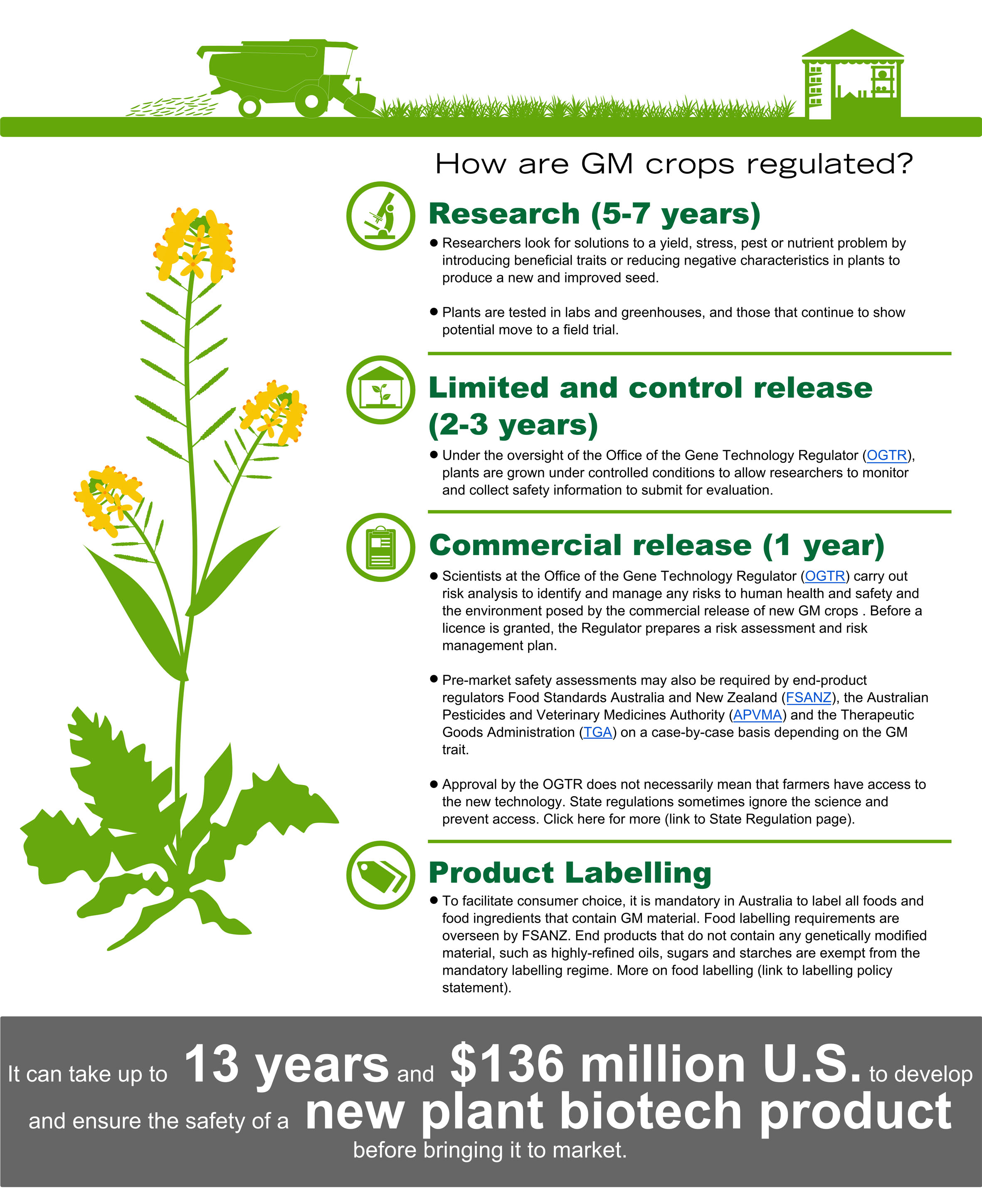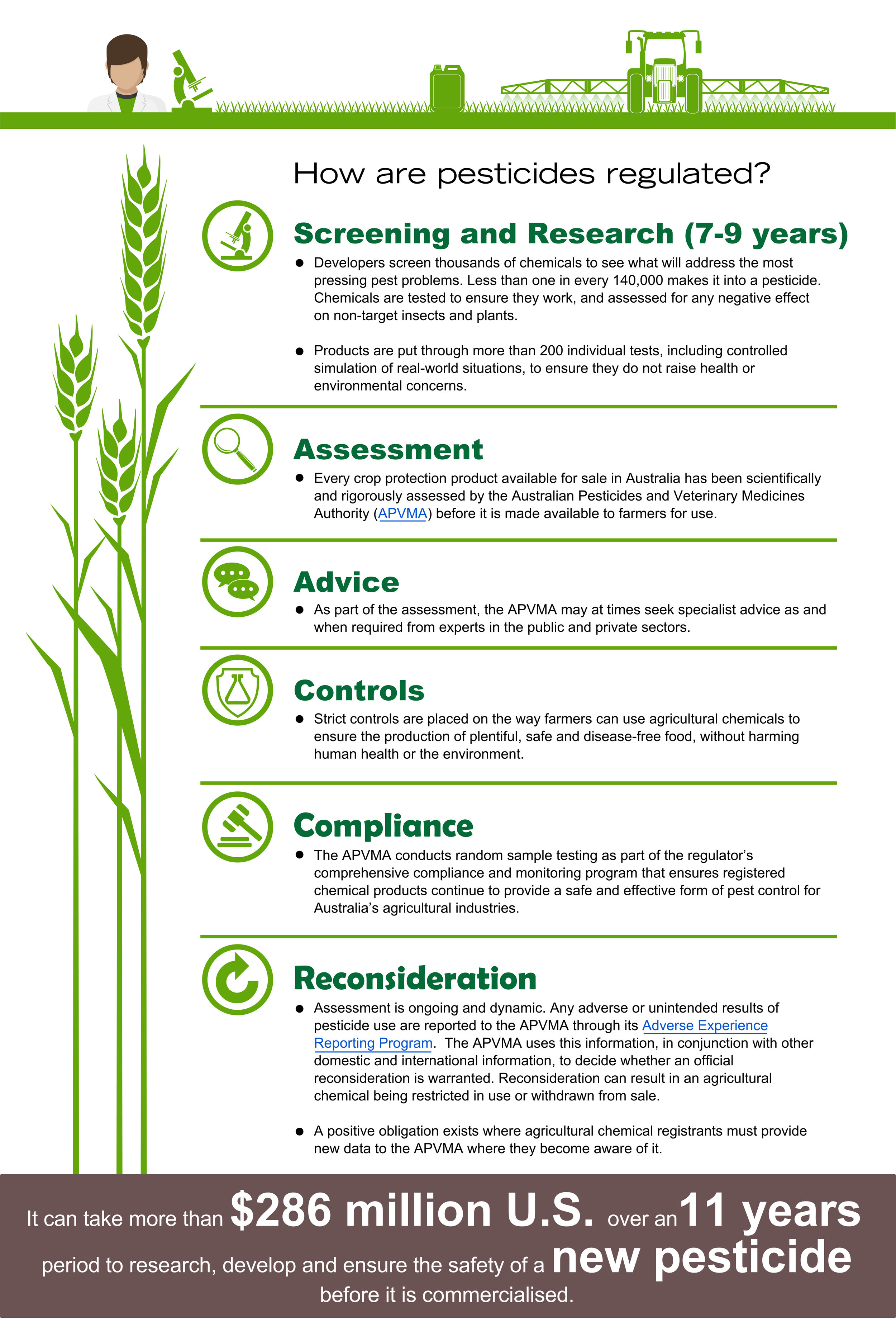Safeguards and Regulation
Australia’s plant science regulations and safeguards are globally recognised as scientifically competent, evidence-based and technically proficient.
GM crop regulation in Australia
Research from 130 projects involving 500 independent research groups over 25 years has concluded: “There is, as of today, no scientific evidence associating GMOs with higher risks for the environment or for food and feed safety than conventional plants and organisms.”
Even so, all GM crops have been subjected to at least a decade of testing, re-testing and independent verification before they are approved for commercial use.
Most GM crops are commodities that are extensively traded on world markets, such as canola and cotton. These have to meet food and regulatory standards in several different jurisdictions (such as in the US, the EU, Japan and China). In practice, traded GM commodities have to pass regulatory scrutiny in counties to which they are exported. The safety assessment frameworks in these different trading countries have a substantial degree of consistency.
The UN forum Codex Alimentarius Commission is the major international intergovernmental forum in which this safety framework was developed. Codex has established international guidelines for the safety assessment of foods derived from modern biotechnology. The Australian protocols for the pre-market safety assessment of GM foods are in-line with Codex principles.
Codex emphasises the use of sound scientific evidence for food risk assessment and the separation of risk policy and risk management from scientific risk assessment. In Australia, the management of GM food safety follows these principles.
Agricultural chemical regulation in Australia
Agricultural chemicals are the most regulated products on the Australian market, equivalent to pharmaceuticals. Every single pesticide registered for use in Australia is independently and scientifically assessed by the Australian Pesticides and Veterinary Medicines Authority (APVMA) before they are available for use.
All crop protection products have to be proven safe before they are registered for use in Australia, this includes assessment of human, animal and environmental exposure. Approved label directions are then applied to products to ensure they are used safely.
In addition, post-market compliance and monitoring systems such as the Australian Government’s National Residue Survey, FreshCare and other industry quality assurance programs enforced by Australia’s major retailers, ensure the safety of fruit and vegetables in terms of pesticide residue for sale in Australia.
Protecting the environment
CropLife Australia members help to protect the environment by taking responsibility for their products from manufacture through to disposal. CropLife’s principal stewardship activities delivered by Agsafe – Accreditation & Training, drumMUSTER, and ChemClear® – ensure that our members’ products are developed, sold, used and disposed of appropriately.
CropLife is also working with farmers and beekeepers to ensure our healthy bee population remains safe, visit our Pollinator Protection Initiative page.
Individual member companies also teach their customers how to use pesticides responsibly in order to protect the environment and neighbouring crops.
CropLife members support farmers who use GM cotton and canola with training and accreditation courses. This includes advocating good on-farm management to ensure sustainability of the technology and following Crop Management Plans to ensure the segregation and co-existence of GM and non-GM crops if required.
To learn more about how CropLife and its members are reducing agriculture’s environmental footprint, visit our Stewardship page.

